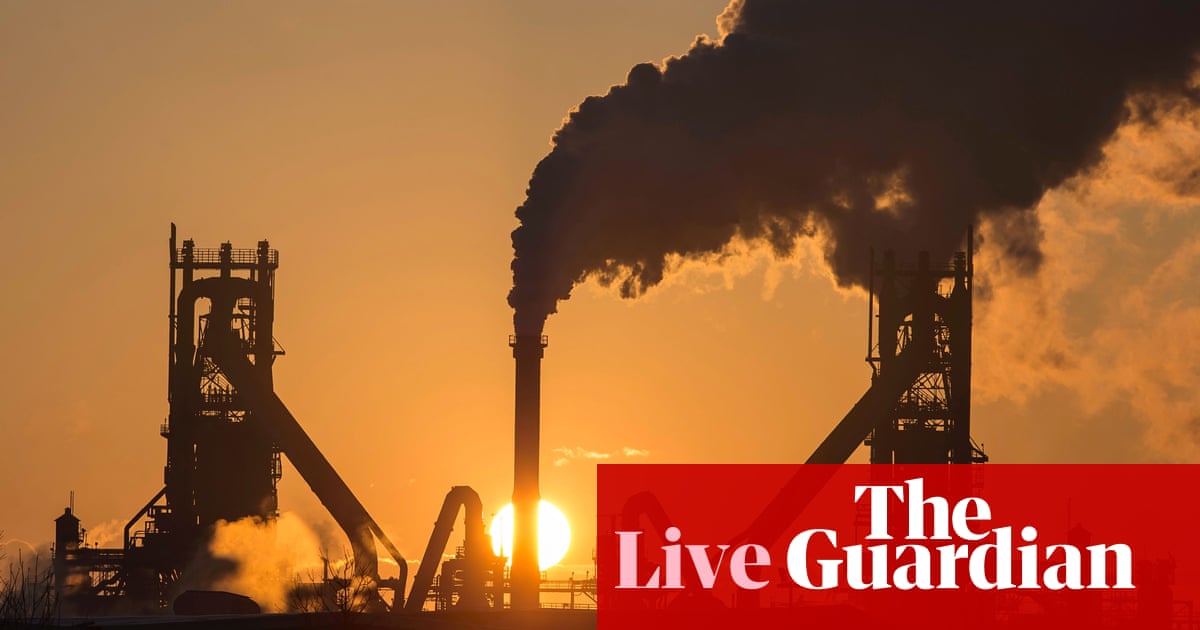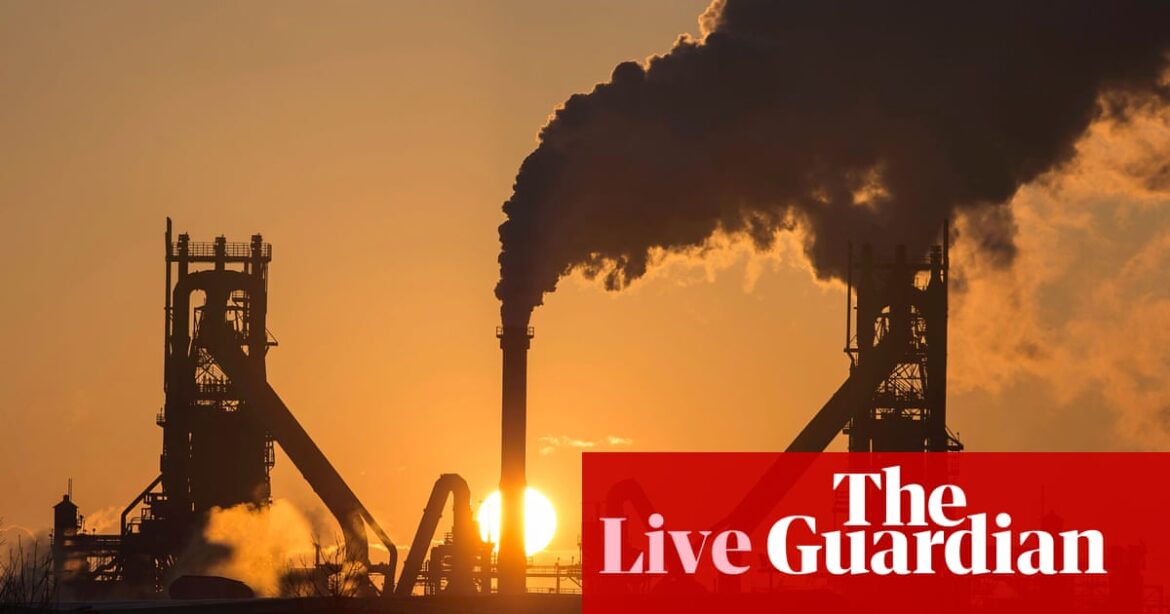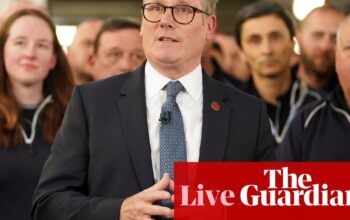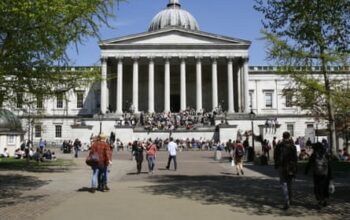
Wera Hobhouse, who was turned back by officials on Thursday, said she was given no explanation as to why this happened, and could only assume that it was because she had spoken out about rights abuses by China.
Hobhouse told Sky News that after she and her husband arrived, he was quickly given permission to stay but that she was asked to step aside. The couple’s son, a university academic, lives in Hong Kong, and they hoped to see their three-month-old grandson.
“And at the end of about three hours, my husband was told he was free to go but I was denied entry, and I was going to go back on the next plane home,” Hobhouse said.
The Bath MP said that while she tried to be “cooperative and friendly” in the expectation she would eventually be allowed in, on being told she could not, she “slightly lost it” and demanded an explanation, but was told only, “We are so sorry, Madam, we understand.”
She said: “No explanation was given to me, ever. And this is what is so chilling, and should really be a wake-up call for any parliamentarian, because I had no warning that I was on the blacklist.”
Read more of Peter Walker’s report here: UK MP refused entry to Hong Kong accuses China of ‘hidden blacklist’
First Edition newsletter today also has its focus on the crisis at British Steel. Here is my colleague Nimo Omer outlining where we are:
The business secretary, Jonathan Reynolds now holds emergency powers that enable him to compel the company to buy the raw materials it needs, with the government covering the running costs, which Jingye estimates at approximately £700,000 per day in losses.
A failure to order enough coal and iron has resulted in a shortage of vital raw materials that the plant needs imminently to remain operational. Without them, the furnaces would shut down, making closure all the more likely. Reynolds has however refused to say whether British Steel will be able to get the raw materials it needs in time.
The running costs are set to make a significant dent in the government’s £2.5bn steel fund. Reynolds said that the cost to the economy of closing the plant would have been at least £1bn, a figure he said would exceed the losses anticipated from nationalising the site.
The business secretary did not accuse Jingye of deliberately sabotaging the plant, though he did say that “it might be neglect”. The government does not expect Jingye to re-enter negotiations but Reynolds added that recent events had raised a “high trust bar” for Chinese firms seeking to invest in key British industries.
Increasing volatility in global markets, particularly in light of the Trump administration’s stance on European security and trade tariffs, has perhaps also put pressure on the government to keep the British steel industry afloat.
You can read more from Nimo Omer here: Monday briefing – is nationalisation the answer to the British Steel crisis?
Another union official, Roy Rickhuss, who has been general secretary of the Community Union since 2013, also appeared during the media round today, talking about the government’s efforts to keep the blast furnaces in Scunthorpe in operation. He told listeners of the BBC Radio 4 Today programme:
The Chinese owners Jingye, unfortunately, were seen to be working against the business, if that’s fair to say. They weren’t ordering raw materials. Not only that, but they were refusing to pay for raw materials, and they were actually turning away raw materials and trying to transfer them elsewhere.
I think Jingye had a plan. The plan was to close the blast furnaces and they were going to import steel from China to run through our mills, and British Steel would have become what we call a re-rolling facility.
British Steel’s plant in Scunthorpe employs about 2,700 people, and is the only remaining plant in the UK capable of producing the virgin steel required in major construction projects.
Charlotte Brumpton-Childs, national officer for the GMB union, has said she has been “wholly reassured” that raw materials are set to arrive at the Scunthorpe blast furnaces to ensure their continued operation.
Speaking on the BBC Breakfast programme, PA Media reports she told viewers:
I spoke to British Steel late yesterday evening and was wholly reassured, actually. I’m told that the coke that’s at Immingham Bulk Terminal will be paid for and unloaded over the next couple of days and that Government are working at pace to secure the rest of the raw materials that are currently on the ocean.
Government minister James Murray has defended the government’s decision to use taxpayer’s money to bail out the blast furnaces in Scunthorpe rather than using the money elsewhere.
In an exchange on the BBC Radio 4 Today programme where the Exchequer Secretary to the Treasury was asked if the money wouldn’t be better diverted to public services, he told listeners:
If we want to build hospitals, we need steel. If we want to build 1.5m homes, we need steel. If we want to expand Heathrow, we need steel.
Steel is a really critical part of our plan for change, as well as our national security. We want to support steel making here in the UK, and that’s why we’ve intervened
We need to make sure that the future of steel making in the UK is sustainable, and we need to make sure that we’re bringing down energy costs for businesses.
A government minister has said that the owners of British Steel had “clearly behaved irresponsibly” but there was no wider lesson to be drawn about the involvement of Chinese firms in critical infrastructure in the UK.
James Murray, Exchequer Secretary to the Treasury, said of Jingye on the BBC Radio 4 Today programme that:
The company we’re talking about here, in relation to Scunthorpe, has clearly behaved irresponsibly. It became apparent in recent days that they were accelerating the closure of the blast furnaces. That’s why we had to act quickly to get the legislation in place.
But one company doesn’t speak to all companies who are based in China. And you know, we need to make clear that we are open for that investment from around the world.
After a similar line of questioning on Times Radio earlier, Murray had said “we need to be clear that we have an approach where we encourage investment from around the world, and are open to that investment and free trade, but at the same time having these very clear principles of saying when there is foreign involvement in critical infrastructure, they will receive the highest scrutiny.”
[email protected] if you have spotted typos or what you consider to be errors or omissions.
Source: theguardian.com



